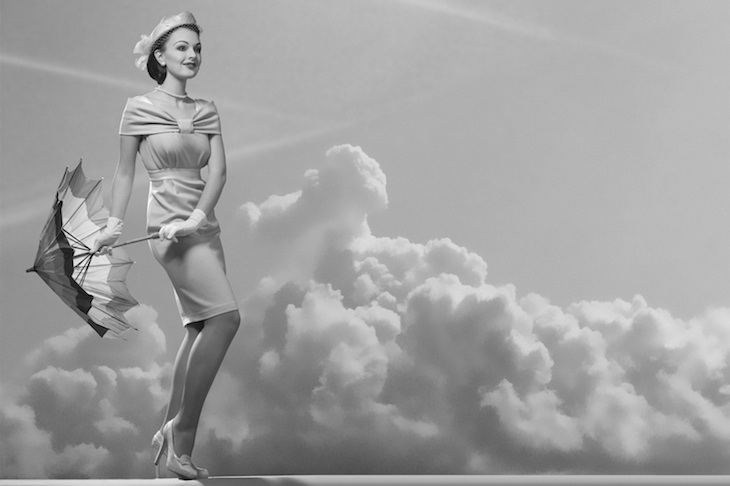In 1940, the British Security Coordination sent an agent with an assistant to a Hollywood film studio to help promote the British war effort in America. This is the inspiration behind Louise Levene’s enjoyable new novel Happy Little Bluebirds. Here, though, the assistant — Evelyn Murdoch, who was working at the Postal Censorship department in Woking — discovers that she was drafted in by mistake: HQ didn’t read her file properly and assumed she was a man (‘Red faces all round,’ a British Intelligence worker tells Evelyn when she arrives in the United States), which is one of the only moments in the narrative that feels stretched.
The agent who Evelyn is meant to assist has gone to Bermuda for an unspecified length of time. No one knows what Evelyn should do in California while she waits for him, other than blend in. But she comes from an uptight Methodist household: her father ‘disapproved of scent’ and her husband Silas, a dentist, recently killed in the war, ‘had the same Wesleyan horror of adornment’. Wearing a ‘mannish, pavement-grey suit’ and periodically consulting a Bible for advice, she is nothing like the ‘light-minded’, flashy glamour she sees all around her in ‘this strange, Oz-like world’. Even the food is exaggerated — ‘big yellow eggs, ringlets of smoked bacon and a golden pile of fried potatoes’; and women’s noses are ‘so thickly powdered that they looked more like papier mâché than flesh’.
Evelyn is given a makeover, swanky clothes and a Bel Air pool house to stay in. We follow her slinking between farcical parties and ‘the easy chitchat of men and women who knew what enjoying oneself should look and sound like’. Before long, she’s seduced by this ‘bigger, brighter’ version of reality; it’s as though she’s living in a film. At one point, she asks herself: ‘Could this all still pan out as a romantic comedy?’
The war seems remote, yet Levene deftly makes it simmer in the background. Evelyn thinks she’s under surveillance by Germans; her Japanese gardener rakes gravel into interlocking swastikas and her sister-in-law writes to her from England about the bombings in London (‘bricks, furniture, lampshades, biscuit tins. I saw a bedroom slipper with a foot still in it. I thought it was all offices round there’). These intimate letters contain some of the most evocative passages in the book.
Levene gives us a brilliant array of sardonic, often horrifying portraits, too. During a meeting with the studio’s executives, producers and writers, for example, Evelyn notices that one man ‘remained silent… but made the occasional note with a gold fountain pen (‘look busy’)’; and at the birthday party of a child actress (who is 12, but the studio claims she is eight), a group of little girls are dressed in ‘pastel-coloured frocks that barely covered the pastel-coloured panties beneath… bridesmaids at the wedding of the painted doll’.
Not much happens in Happy Little Bluebirds, but this is perhaps fitting for the superficial, make-believe land that Levene showcases so well.






Comments